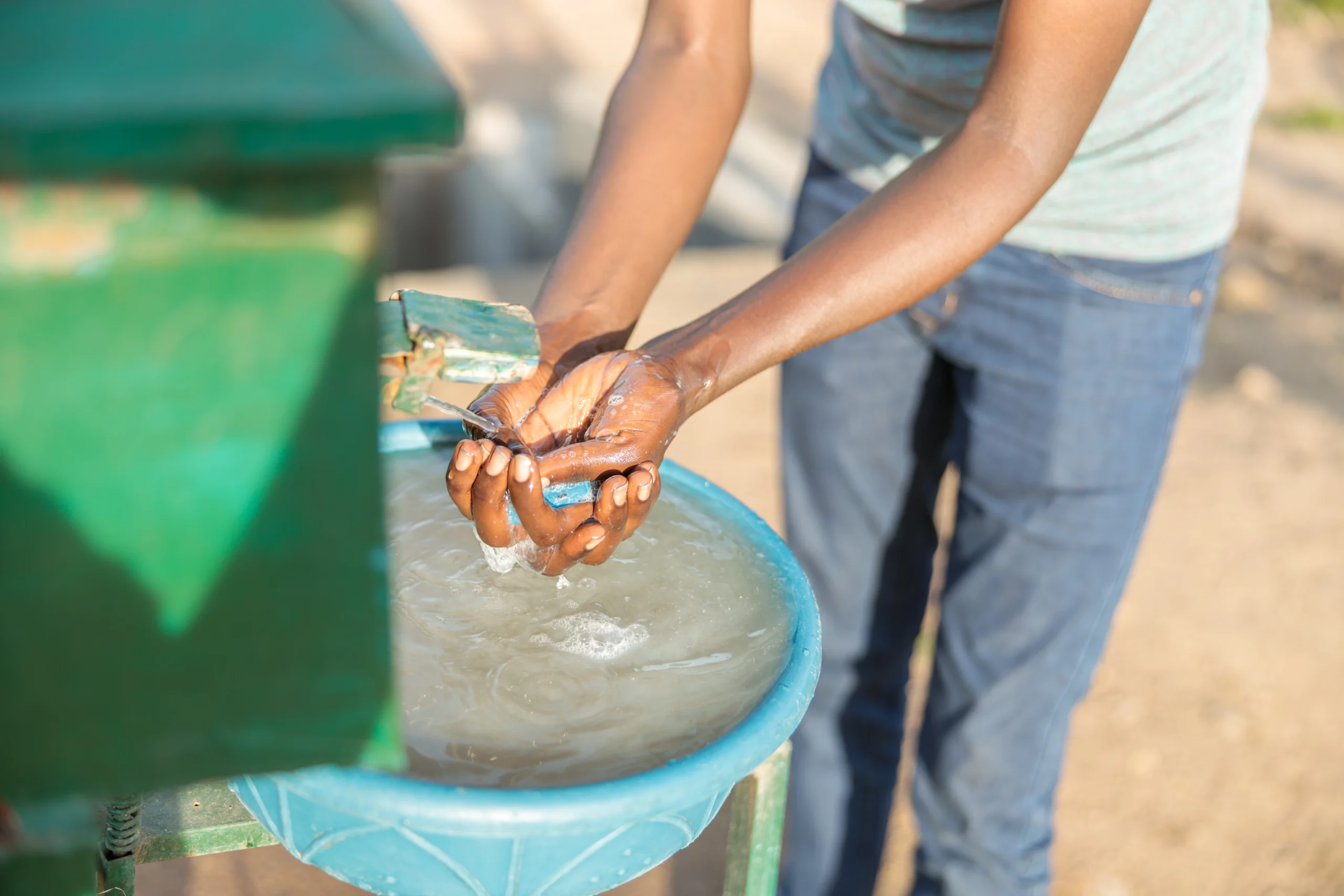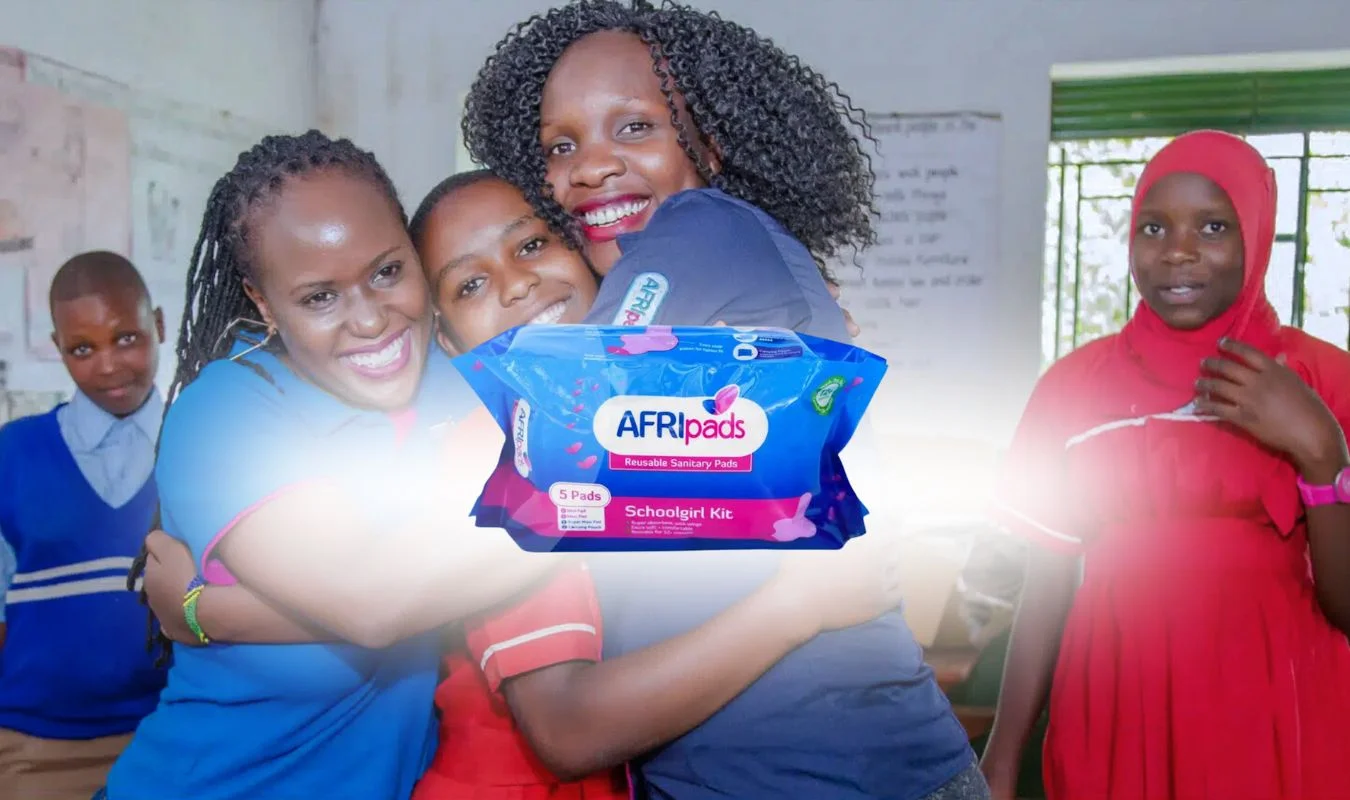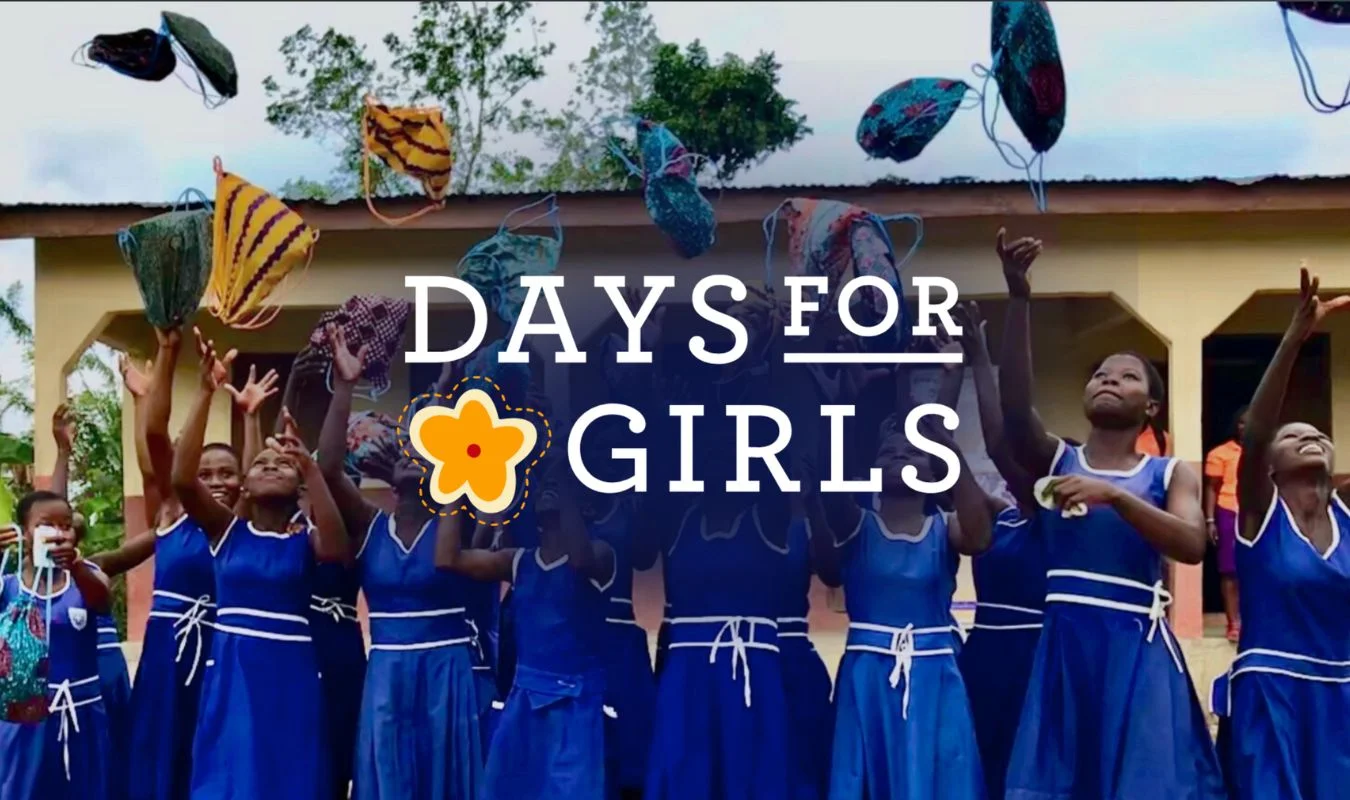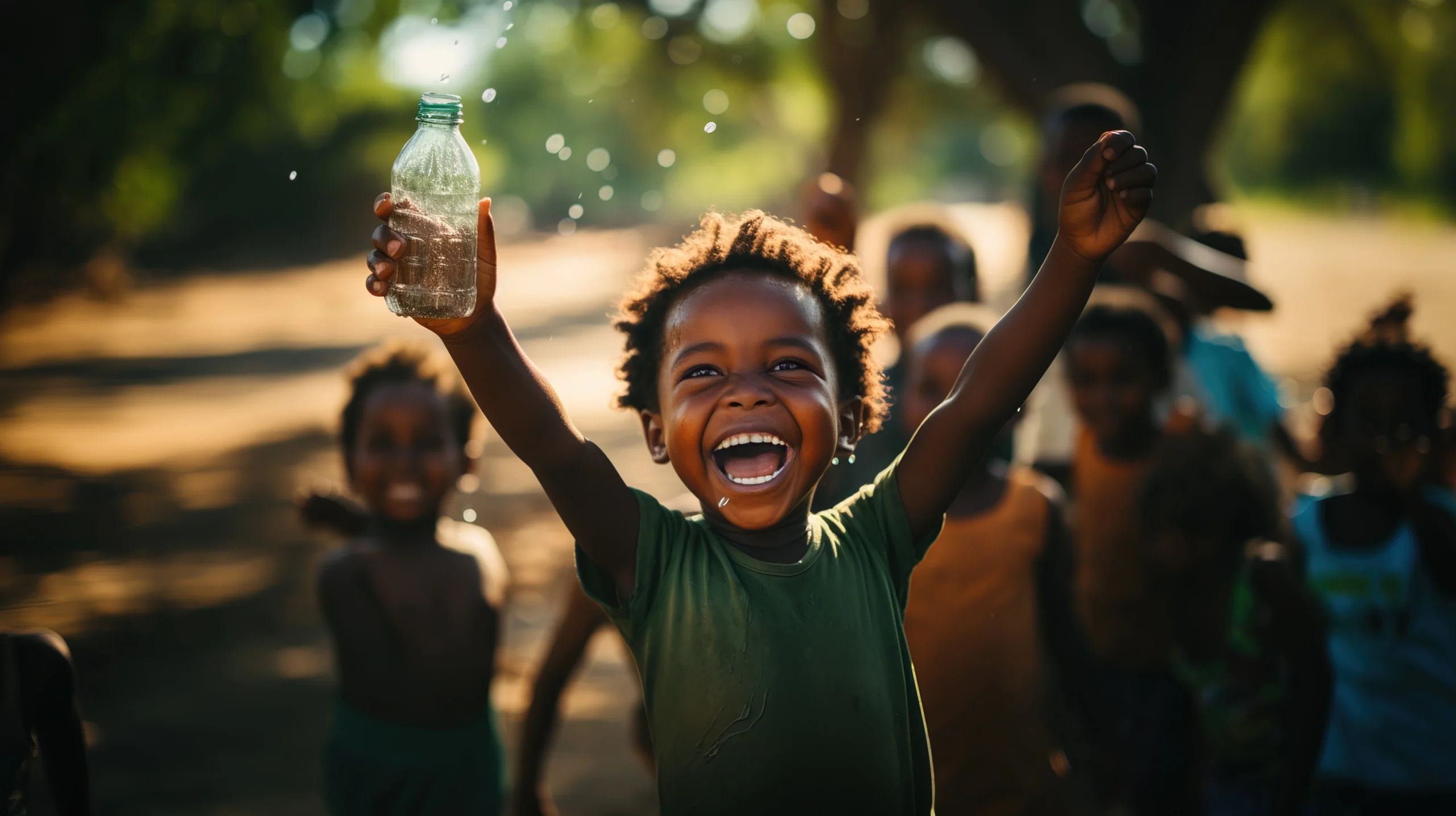By Julia Hall and Grace Obeda
When human beings are suffering from dehydration, who answers the call?
During this year’s World Water Week, we want to focus on how positive change is generated around the world. How exactly are people mobilized when clean water solutions are needed, and through which channels? We asked ourselves, who plants the seeds of change?
For a company like Business Connect that is able to reach communities all around the world through our distribution network, we celebrate our partners as the ones who plant the seeds of change. We recognize World Water Week as a larger mission: the sum of every mission and every individual action will sprout new hope for those living in unlivable conditions and without clean water.
This recognition forces us to reevaluate our relationship with water, and how we manage this precious resource. In order to cope in a more water scarce world, we must envision greater innovations, ideas, and governance systems. But to take these strategies from the drawing board to the real world is a feat in and of itself. So who implements fast clean water solutions, and how do they make it happen?
Maasai Unincorporated Community, Kenya—
Christian Mission Aid (CMA) is a nonprofit organization founded in 1986 with a “vision to create a holistic ministry, meeting the spiritual as well as physical needs of the people in East Africa,” (CMA). Similar to Business Connect’s focus, Christian Mission Aid centers their work in empowering local leaders with life-giving technology and WASH solutions.
Christian Mission Aid gifted women of the Maasai tribe our VF100 Home Water Filter. The gift was for women participating in CMA’s literacy program, a service Christian Mission Aid provides to help grow skill in reading and writing.

We spoke with Chad, an Awareness Ambassador within CMA, about his time in Kenya, sights and sounds of the area, and the emotions felt during his experience.
Spirituality was a theme that arose when Chad illustrated different values that the Maasai women hold. Chad indicated that CMA’s Literacy Program helped one woman demonstrate her faith to her children through reading.
“One lady was telling us how she was able to now read the Bible to her children,” Chad said. “And as she was telling us, you know, there were tears in her eyes. It was just a beautiful story as she told it… and it just feels like she can now be a bigger part of communicating who God is to her kids.”
Chad also highlighted a strong, devout presence among the people. At one point, a church was in the process of being built in the area. Chad was impressed that though they did not have a building to gather in, they still gathered. The Maasai people, and people from other villages, all gathered for church underneath a large tree with an oblong top called an Acacia. Chad had “never seen anything quite like it,” before, and was amazed at the sight.
Many living in rural areas of East Africa, like in several other regions around the world, have to walk very long distances to gather water. Women of the Maasai, who live far outside the city, must often walk 1.5 hours to their nearest reliable water source.
Their Water Source
Chad went along with some of the people–one woman brought her children, 5 and 9 years old, to view their water source before presenting them with the filters. Chad spoke of the heat, which was in the low 90s (F), and it seemed like no problem to the Maasai people. In fact, one of the children had a sweater on.
As they drew closer to the water source, Chad noticed a fenced-in area with goats. He saw that a few had broken loose from their enclosure. Chad thought nothing of it at the time, until they reached the watering hole.

“You’re seeing this water that looks like… chocolate milk,” He described. “I mean I’ve never seen anything like it… and then this green algae on top, and the women are basically just going right in to try to get the algae off.”
Chad then, amazed and appalled, saw all the goats he had witnessed prior… running in, drinking the water, sharing the same water source. He noted that the ladies weren’t fazed by this shared space–they seemed to be focused on gathering water.

The Water Filters
After the group made the return trip, Chad and other members of CMA demonstrated how to use and properly backflush the VF100 Home Water Filter. They completed the demonstrations and then were able to filter the dirt-ridden water. Chad was impressed by the result–he brought up that it resembled bottled water after filtration.
“How it came out like bottled water…. I mean, there’s no tint of color to it, nothing. If I handed you this bottled water filled with the water we drank… you wouldn’t think that it was filtered from that source.”

Chad drank the water with the women, who seemed pleased that he drank with them. There was clapping, smiles, and a feeling of excitement for a gift that would keep on giving. When members of CMA went back a couple weeks later, to check on how the filters were operating, they were amazed with the physiological and emotional effects of the filters.
“They said that their kids… their intestinal issues have stopped. They haven’t had to miss their chores, or any schooling,” Chad emphasized.
Christian Mission Aid and Business Connect were honored to connect, through water, with women and children of the Maasai people. Their culture and values are a warm reminder of the similarities we all share as human beings, and the simple needs that we all deserve.
“It’s basically, you know, life that they’ve never known before, because of clean water,” Chad beamed. “This is life-giving water.”
The Massai women represent multiple facets of the water crisis. Their daily water usage requires an immense amount of time dedicated to water collection, while the water available presents a danger of waterborne illness to everyone in their community. This is when fast clean water solutions are most needed, and when Christian Mission Aid was able to swiftly distribute them.
The implementation of VF100 Home Water Filters can solve issues of contaminated water, reduce rates of illness, and improve quality of life through time spent working, going to school, and enjoying fellowship with family and friends.
While these women still incur the costs of strenuous, daily water hauling, their lives, and the lives of everyone in their community, have significantly improved because of an organization like Christian Mission Aid, and innovative solutions such as the VF100 Home Water Filter.
Lviv, Ukraine—
We spoke with Borys Bodnar, a Rotarian within the Rotary Club Ukraine Unity group. Borys is actively working on logistics coordination within Lviv, Ukraine, and gathering medical supplies and water filtration and treatment products for communities of people displaced from their homes. Borys has lived in Lviv for a number of years, but before Ukraine, he lived in the United Kingdom, working as a tax advisor.
Borys provided the challenges and the strengths of coordinating efforts with volunteers. Rotarians, by nature of their membership, are there on their own time and do not get paid for their work, though Borys’ contributions are that of a full-time job.
In total, Rotary has channeled 14.5 million USD through over 400 grants to disaster response in Ukraine.
Borys’ (right, to the far right) commitment to the Rotary cause exemplifies the organization’s ethos of service above self. He noted that it can be challenging banding people together at all times for the cause, but when it works, it works.
While Rotarians willingly contribute their time and efforts, it is the synergy of collaborative work that truly amplifies their effectiveness. Borys’ leadership in Lviv and his efforts to foster unity across Ukraine through the Rotary network exemplify the power of collective action and shared purpose.

“But—if we work together, which we try to do here in Lviv and across Ukraine through Rotary, we do make things work,” Borys shared.
When asked if he had seen anything inspirational on the ground in Ukraine, Borys paused and thought for a moment. It seemed that he was overwhelmed with possibilities—moments of hope and togetherness filled his mind. After a moment of processing, Borys praised the communities, the locals, for their morale despite the circumstances of the war.

“What’s clear to me is the dedication and commitment of local people to helping those that really need help,” he responded.
Of course, maintaining wellbeing during wartime requires great morale. It also requires a realization that human lives are more important than the issues that start an invasion. Borys reflected this with his commentary on how his Rotary club, Rotary Club Ukraine Unity, has attempted to change the normalcy of war.
“[We are] bringing something to the rest of the world… a realization that these things have to be stopped. It has to stop. And we’re making a huge contribution in that direction.”
Navigating the complex landscape of disaster during wartime, Borys noted the role of Business Connect in expediting the distribution of aid.
He highlighted, “The short-term solution… which Business Connect has helped immensely with… is to swiftly bring in supplies which can be distributed, which provide individual solutions.”
This strategic partnership underscores the potency of collaboration in addressing pressing humanitarian needs. Our connection with Borys and Rotary Club Ukraine Unity has demonstrated just how vital a suite of low-cost solutions are to a problem like this.
Like our own, Borys’ strategy in delivering humanitarian aid transcends a one-size-fits-all approach and acknowledges the diversity of needs among affected communities. This is why it was so necessary to make the connection with Business Connect for these fast clean water solutions.
He emphasized, “It’s not always the larger-scale things that are most needed. Different solutions are important. Our focus is to bring as much as possible.”
Borys has coordinated the shipping of VF100 Home Water Filters, P&G Purifier of Water packets, and Aquatabs water treatment tablets. These contributions not only alleviate immediate challenges but also offer hope and resilience to those grappling with displacement.
Quick Clean Water Solutions, At The Right Time
“But all of a sudden, we had the dam being blown up.”
The catastrophic destruction of the Kakhovka dam on June 6 by Russian occupiers unleashed a torrent of water from the immense Kakhovka reservoir, inundating numerous villages along the Dnipro river’s left bank, including Oleshky, Kardashinka, and Gola Prystan.
The floodwaters cascaded downstream, reaching Kherson city on June 7, compelling residents to abandon their homes. Subsequent flooding extended to remote settlements as the water surged into smaller rivers west of Dnipro, affecting regions such as Mykolaiv oblast. (Wilson Center).
The flooding caused by the dam explosion will make land unusable for years beyond the disaster. Pollution, subsequent drought, and homelessness will plague the Kherson and Mykolaiv region long after Russians occupy them.
Amid the tragedy, stories of human loss emerged, underscoring the devastating impact of the disaster.

Many underestimated the scale of potential flooding, resulting in lives lost, homes destroyed, and possessions ruined by the unstoppable deluge.

Borys continued, “We had that [P&G Purifier of Water] on hand. We sent 500 boxes of these powders to Kherson-Nikolaev when they were really, really needed.”
Borys emphasized the importance of having clean water solutions at the ready.
“These things happen for a reason, of course. Our model of receiving those kinds of supplies to have them on hand to distribute has really worked.”
Follow Rotary Club Ukraine Unity on Facebook to see more photos of the organization’s efforts.

What Now?
The world’s water crisis will take an unprecedented amount of innovation and cooperation on a global scale. We will need to reimagine water management on both a personal and industry magnitude, and collaborate at every level if we are to create positive change in our increasingly water scarce world.
As Business Connect understands that different issues require different solutions, we’ve launched Business Connect For Water, a platform for organizations working in the water space. Water projects like these can be large in scale and difficult to coordinate. We created Business Connect For Water to ease the difficulties of implementing fast clean water solutions where they’re needed.
Even as we offer this service, our collective will need to explore new technologies and creative clean water solutions. Organizations like Christian Mission Aid and Ukraine Rotary Club Unity Group are the forces behind the application of these innovations, and the drivers of collaboration. They are the ones who plant the seeds of change, but it is the duty of every global citizen to participate in cultivating and maintaining these changes for a more water-wise world. If you have an idea or are inspired to help, reach out to us. We’ll be sure to get back to you with any guidance we can offer.
On this page
Have a story to share in the world of water, sanitation, and hygiene? Connect with our media team today!
Share Your Story




